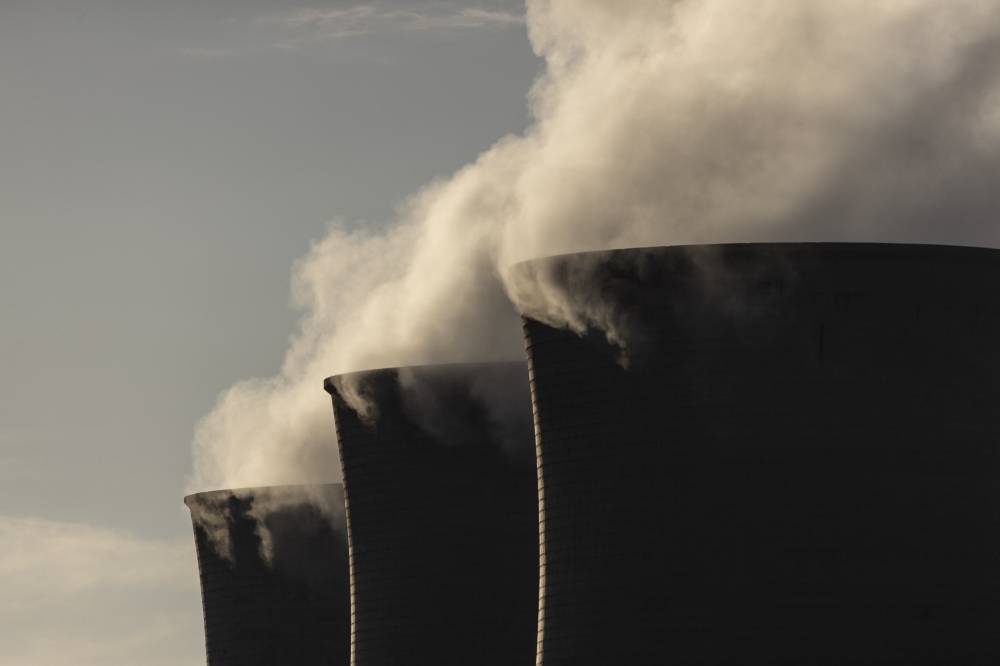What's at stake in EU's 2040 climate target
The 27-nation European Union has pledged to be carbon neutral by 2050, and is already working to cut greenhouse gas emissions by 55 per cent by 2030 compared with 1990 levels.

BRUSSELS - The European Commission unveiled Tuesday its next major target for cutting the bloc's global warming emissions.
Here is what is at stake:
- The end goal -
The 27-nation European Union has pledged to be carbon neutral by 2050, and is already working to cut greenhouse gas emissions by 55 percent by 2030 compared with 1990 levels.
For the next milestone, 2040, the commission recommended a net drop of 90 per cent -- maintaining roughly the same pace of cuts.
The next commission, to be appointed after June's European elections, will be tasked with turning the advice into legislation for member states and EU lawmakers to consider ahead of next year's COP30 climate conference.
- A second Green Deal? -
If the EU fully implements the measures of the existing Green Deal -- in transport, renewables, carbon trading -- it will come close to meeting its 90 per cent target, the commission says.
But many of the laws in the sweeping deal have 2030 as a target, and will need updating and expanding.
Another concern is that too little money has been put on the table to fund the transition.
All accept, however, that greening Europe's economy will not be a painless process, as Brussels takes on polluting industries and seeks to shift entrenched consumer lifestyles.
As a result, Brussels is putting a new emphasis on social protections and supporting European businesses as it forges ahead on climate.
- Competitive advantage? -
Adolfo Aiello, of the Eurofer steel federation, is among those concerned about the scale of the task ahead -- and the potential hit to Europe's competitiveness.
But Neil Makaroff, of the Strategic Perspectives think tank, is more optimistic on the advantages of transitioning to clean energy.
He sees the 90 per cent target as "the first brick of a reindustrialisation plan that completes the Green Deal and has the potential to bring investment, factories and jobs back to Europe".
The EU is currently negotiating a regulation aimed at boosting the deployment of net-zero technologies.
Beyond that, Brussels has touted future tools to support clean tech firms until they become commercially viable, through tax breaks, regulation and access to public tenders.
- Energy -
The proposal foresees fossil fuel consumption for energy purposes to fall by 80 per cent by 2040 compared to 2021, though only coal will be phased out.
It plans for the electricity sector to be "close to full decarbonisation" by the second half of the 2030s, thanks to a combination of renewables, hydrogen and nuclear.
In a significant shift, it also leverages nuclear power through an "industrial alliance" to accelerate the deployment of next-generation Small Modular Reactors (SMRs).
The plan fell far short of a call by eight NGOs including WWF and Greenpeace, which had urged the EU to "set clear fossil fuel phase-out dates."
Dominic Eagleton, at Global Witness, warned that targets for emission cuts that did not include a plan to exit fossil fuels "simply aren't credible".
"It's like building a bike without pedals," he said.
- Carbon capture -
Based on the EU's calculations, meeting a 90 per cent target would require a massive ramping up of its capacity to sequester carbon -- outlined in a strategy for "industrial carbon management" also unveiled Tuesday.
The commission plan would involve capturing around 280 million tonnes of carbon per year by 2040, with about two thirds sequestered underground.
Joop Hazenberg, director of the Carbon Capture and Storage Association that represents the industry, said there was a growing acceptance that "you can only get so far with renewable electrons and with renewable hydrogen, and that you cannot go to the last mile".
But the Real Zero Europe campaign of 140 NGOs has urged the EU to change tack, calling carbon removal technologies "dangerous distractions" and a "smokescreen for continued use of fossil fuels".
- Agriculture -
Emissions from agriculture -- two thirds of which are linked to methane and manure from livestock farming, and the rest to nitrogen-based fertilisers -- account for 11 percent of the bloc's total emissions.
The commission plan references "good practices" intended to raise the amount of carbon that is naturally absorbed by soils and forests.
But it dropped a reference to a potential 30 per cent cut in agricultural emissions, as evoked in a previous working document, calling instead for a distributed effort involving the broader agri-food sector and consumers.
- And the cost... -
Brussels estimates total investment needs to meet its 2040 target at around 1.53 trillion euros ($1.65 trillion) per year between 2031 and 2050.
A colossal sum, but one that it sets against a "far larger and growing" cost of inaction linked to climate change and extreme weather events, and continued imports of fossil fuels. - Julien Girault











